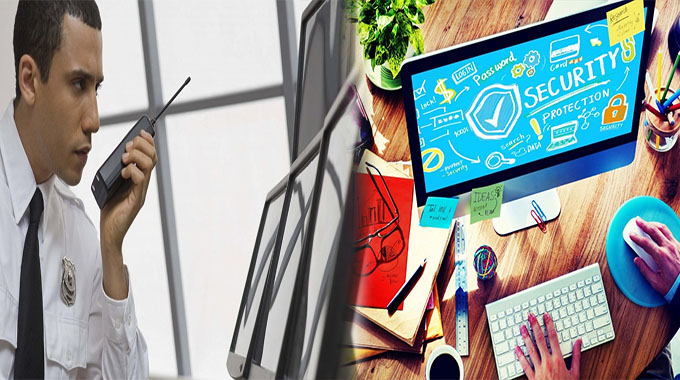If there’s one thing that has become clear in the last few years, it’s this: hackers are getting smarter, and no business is safe from them. That doesn’t mean, however, that you should give up on using technology to grow your business! Far from it. The key to staying safe online isn’t giving up technology; it’s being smart about how you use it. Here are some tips for keeping your business secure while still enjoying all the benefits of going digital:
Always keep your computer’s software up to date.
Always keep your computer’s software up to date.
Updates are free and can fix security vulnerabilities, improve the performance of your computer, or add new features. This is particularly important for operating systems like Windows 10 which have automatic updates turned on by default (although you can choose not to install them).
Don’t share your passwords with anyone.
- Don’t share your passwords with anyone.
- Passwords should not be shared with anyone, including family members, co-workers and business associates. This includes sharing the same email account or computer as someone else.
- Don’t write down your password somewhere that others could find it (like a note on the fridge). If you do need to write down your password for any reason, make sure it’s stored in a safe place where no one else will see it or get access to it – such as behind a locked door or in an encrypted file on your computer/phone!
Use secure connections whenever possible.
As a business owner, you have a lot on your plate. You need to keep your customers happy and sales numbers high while also making sure that everything is running smoothly in the office. One of the best ways to ensure that your personal information stays safe is by using secure connections whenever possible. The first step toward achieving this goal is switching from HTTP (the standard way of connecting internet browsers) to HTTPS whenever possible. This means using https:// instead of http:// at the beginning of any website address or URL (Uniform Resource Locator). If there are no options for an encrypted connection available for a particular site, consider using VPNs or other methods such as Tor browser which provide some level of protection against hackers trying to steal data from users’ computers before sending it back online again through their own servers where they can access it more easily later on down road if necessary.”
Make sure your business uses different passwords for different websites and services.
- Use different passwords for each website or service.
- Passwords should be at least 8 characters long, and contain a mix of letters, numbers and symbols.
- Don’t use personal information in your password (i.e., birthdays, phone numbers). It’s also advisable not to choose an easy-to-guess word (such as “password”).
Make sure the devices you use are safe and secure.
- Use a secure operating system.
- Use a secure browser.
- Use a secure email client.
- Don’t use public wifi, or any network you don’t trust for sensitive work (even if it’s free). If you have to use public WiFi, make sure that all of your devices are encrypted and have up-to-date security patches applied on them; otherwise, hackers can steal information from those devices while they’re connected to the network by stealing packets of data as they pass through unencrypted channels between the user’s device and whatever server they’re accessing over this insecure connection (like their bank’s website).
Use strong passwords for all accounts, and don’t use the same password for multiple accounts.
- Use a password manager to create and store strong passwords for all of your accounts.
- Use a password generator to generate random, hard-to-guess passwords that are as long as possible.
- Create unique combinations of capital and lowercase letters, numbers and special characters in each password you create (for example: 8!0@)
- Make sure that your passwords are long enough so they cannot be guessed or brute forced by hackers. A good rule of thumb is at least 10 characters long; some experts recommend even longer lengths if possible!
Be wary of links containing attachments or downloads sent from unknown sources.
Be wary of links containing attachments or downloads sent from unknown sources. If you receive an email that contains a link to click on, don’t do it. If you get an email from someone you don’t know and they want you to click on a link, don’t do it.
If someone emails you with an attachment or says something along the lines of “This PDF document has some important information about your account,” don’t open it–it could be malware trying to get into your computer (or phone). Also be careful when downloading files from websites; many malicious websites masquerade as legitimate ones in order to trick people into downloading viruses onto their devices when they think they’re just getting something else entirely!
You can go online safely, if you know what you’re doing!
You can go online safely, if you know what you’re doing!
There are lots of things out there on the internet that want to steal your data. They might look like a legitimate website or email, but they’re not. These scams are called phishing attacks and they happen all the time for businesses–especially small ones. But don’t worry: there are ways to protect yourself from them!
We hope that this post has given you a better understanding of how to keep yourself safe online. We know it can be hard to keep up with all the latest security updates, so we’ve created a tool that will do it for you! Our free online service keeps your computer software up-to-date and alerts you when there is any potential threat detected on your system. If there are any issues detected, our team will work with you one-on-one until they’re resolved so that no one has access to your data unless they are authorized by someone at your company














